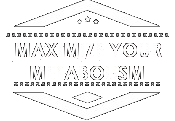“Check out this metabolism booster article which will tell you how to get more energy and vitality by increasing your digestive efficiency.”
Do you want more energy without having to do any more work? If so, this article on metabolism booster will probably be one of your favorite articles.
After making just slight modifications in your diet, as outlined in the next few sections, your body and your mind could enjoy up to 30 percent more energy. What a tremendous boost to your health and to your life! Put into practice all the knowledge in the rest of these articles, and that percentage could go even higher!
What could you do with all that extra energy (after consuming a metabolism booster)?
The human body uses more energy digesting food than it does in performing almost any other normal function. Thus, it is tempting to think that if we stopped eating altogether, we would have endless energy. Since our bodies would use none of our energy in carrying out the process of digestion. Unfortunately, that’s not quite how it works.
Our body is a very complex organism. In order for us to perform any action, we must first supply our body with enough energy (calories). Obviously, the way we do this is by eating and drinking. However, like a car, if you supply your body with the wrong type of fuel, your body will stop performing efficiently (or even completely stop performing).
This next paragraph is vitally important. So please read and reread it so you understand exactly why it is important.
In today’s hectic society, we find ourselves spending less and less time thinking about the nutrients we put into our bodies. We do this so that we have more time to concentrate on work, family, and everything else. We then justify eating overcooked fast food, which dulls our focus and slows our physical and mental pace.
Hmm, what went wrong? Well, let me tell you… What went wrong is that we put way too little emphasis on the types of food we eat. So we end up not eating many kinds of healthy food and a metabolism booster on a regular basis.
If we simply spent more time in planning our food intake, the foods we eat could supply us with a much greater supply of energy. Because our digestive system would require much less energy for the digestive process itself.
Digesting high-fat foods from fast-food restaurants requires much more energy than digesting foods that are more healthful.
Choosing the correct foods, then, is a metabolism booster. It has a direct impact on our health and our energy level. Because nutritious foods such as vegetables and low-fat proteins increase our metabolism and improve our immune and digestive systems!
Here’s another way to break it down:
Poorly planned diet (fast food, for example)
- More time and energy spent in digesting food
- Less energy available to us, mentally and physically
- Stress
Properly planned diet (low-fat protein and fresh, raw vegetables)
- Fast, thorough digestion
- Massive energy reserves
There are two nutrients that outperform all others when it comes to squeezing the most out of every calorie that we consume: enzymes and water.
Enzymes, The 1st Metabolism Booster
Enzymes are the spark plugs of life. They are responsible for digesting everything that goes into our mouth. Without enzymes, not only would our foods literally stagnate in our stomach, but our hormones and glands would be unable to function.
There are four major enzymes:
- Amylase, needed to break down starches
- Lipase, needed to break down fats
- Protease, needed to break down protein
- Cellulase, needed to break down cellulose
We need to have proper amounts of each of these four major enzymes—along with thousands of others, both known and unknown—in our system on a regular basis.
When food, drinks, or other substances are introduced into the human body without the proper enzymes, those substances cannot be fully digested.
The human body does make some of its own digestive substances. But some foods cannot be fully processed without the help of outside enzymes that were “designed” to digest those particular nutrients.
Our Need For Enzymes
When a person eats red meat, the majority of enzymes necessary to digest that meat are not present in the meat itself. And for all we know, things may have been different in this respect a thousand years ago, before the introduction of steroids and other drugs that we routinely inject into our livestock nowadays.
- Perhaps there were enzymes present in the meat back in the days when cattle were “free range.”
- And cattle were allowed to graze on the best of grasses, grasses that had not been fertilized with chemicals.
- Or when cattle were allowed to run free and to get enough exercise in the wild so as to remain strong, healthy, and free of the diseases that we find on the cattle farms of today.
In times gone by, the meat may have been full of the natural enzymes that are necessary for the human body to digest it in its entirety. But this is not the case today.
The meat we eat is dependent on the intake of “outside” enzymes at the same meal for its digestion. Without these other enzymes, partially digested food remains in our digestive tract.
Now the problem with partially digested food is that it becomes stale and stagnant, even to the point of developing gases and attracting toxins—and, eventually, even worms. (Yes, the human body can, and often does, provide a comfy home for various types of worms.)
Our Digestive System
The process that takes place in our digestive system is similar to what occurs when a car hits and kills a deer. After several hours, the flesh of the deer begins to turn rancid. This is similar to what happens when undigested meat remains in the human digestive tract.
Why do I use such an unappealing example? The reason, very simply, is that I want you to get the point. And the point is that we need to digest our food as soon as possible after consuming it.
Retracing Our Steps
How do we do this? How do we stop this process of rotting and decay in our digestive system without taking red meat out of our diet?
Simply by consuming the correct enzymes in the same meal as the meat!
As stated above, protease is the enzyme that is primarily responsible for the digestion of protein. But we also need a sufficient amount of lipase in our system. Since red meat contains a large amount of fat.
Is the mere presence of those two enzymes enough to ensure complete digestion? Absolutely not! They are each a metabolism booster. Full digestion requires that those enzymes combine properly:
- in a live state (such as found in raw vegetables),
- and mixed with other enzymes that facilitate their work.
To get enzymes like this into your body, you must consume them in as fresh a state as possible.
Eat Foods With High Levels Of Enzymes
One example of a food that has high levels of enzymes in its live state is raw vegetables. (And raw organic vegetables have a far higher level of enzymes than other raw vegetables.) Nevertheless, eating a few raw vegetables with a meal does not ensure full digestion.
Our bodies need to be healthy and “regular,” as opposed to “constipated” (this was covered in great detail in the body cleanse article), before we eat meat. What this means is that you should regularly eat foods that contain high levels of live enzymes.
As a matter of fact, a person who eats foods that contain high levels of live enzymes and omits all other foods from their diet (except for perhaps a small serving of protein several times each day) will be very healthy and quite regular.
You can find enzymes in all living things. However, they tend to get destroyed because of the chemicals we use to clean our food and the high temperatures at which we cook it.
Which Foods Have Enzymes For Digestion?
The foods that tend to contain plenty of live enzymes are fruits and vegetables, as long as they are eaten raw (not processed, canned, cooked, etc. before being consumed).
- Examples of foods that contain little in the way of live enzymes are meats, breads, pasta, processed or canned foods, etc.
Virtually any process (including cooking) that we use to make food last longer or give it a longer shelf life is bound to destroy most of its live enzymes.
Without ingesting each of these enzymes in their correct proportions, we would fail to function.
It is important to keep in mind that everything that our bodies ingest, no matter how large or small, must be either assimilated or eliminated. And our enzymatic systems directly control both of those processes.
Water, The 2nd Metabolism Booster
Enzymes are not the only metabolism booster that we need as an aid in food digestion. We must also consume an abundance of plain, fresh WATER.
We all know how great a glass of ice-cold water feels and tastes on a hot day. But do you realize how absolutely important this natural metabolism booster is to your health?
Water is a rather simple organic compound, composed of two parts hydrogen and one part oxygen. It is tasteless, odorless, and clear. Yet no living organism can survive for more than seventy-two hours without a constant supply of this metabolism booster.
How Much Water Does A Human Have In Their Body?
On average, the human body is made of about 60% water by weight.
Through stress or starvation, the body can become depleted by up to half of its carbohydrate, fat, and protein stores before death or disease sets in, but if only 20% of the body’s store of water is depleted, delirium and death are likely to occur.
Your personal requirements for water will vary with your weight, physical activity, and age. We’ve stated before the importance of consuming a certain amount of water, but it warrants repetition here.
How Much Water Does A Human Need To Drink?
Under normal environmental conditions, the body of a physically active adult requires approximately one cup of water for every 14 to 20 pounds of body weight. This adds up to about eight to ten glasses of water per day for an average-sized female, and ten to twelve glasses for an average-sized male.
To put it more precisely, the body attains the proper level of water when the input of water matches the output of bodily fluids. The main avenue for water loss is through the urinary tract. But the body also excretes water in the feces, in exhaled air, and through perspiration.
As stated earlier, water makes up over 60% of body weight in humans. And the human body stores water in various areas within itself.
Two Types Of Water Storage In Humans
We will focus on two types of water storage in humans: intercellular and intravascular.
Water that is stored intercellularly (literally, “between the cells”) is responsible for the health of the cells that it encompasses. Unfortunately, it is also the main component of subcutaneous water deposits, which are deposits of water under the skin. This is the water that accumulates between a person’s muscle and skin and causes the bloated appearance we all dread.
Water that is stored intravascularly (literally, “within the vessels”) is the water that helps regulate blood pressure. When the body is deprived of water for an extended period of time, it compensates for this deficiency by moving water from one storage site to another, thus maintaining an equal balance of water everywhere.
The problem with this is that when water is transported from intravascular storage sites for use in other areas of the body, it causes the blood pressure to rise accordingly. Therefore, people who engage in strenuous activity such as sports without replacing the water lost through perspiration are taxing their bodies in more ways than they might realize.
Unhealthful Condition
This creates an unhealthful condition in the body. Also a lack of water places the entire system in a survival mode. This forces the body to retain any water that you consume from that point on.
This is one of the reasons why nutritionists claim that people who have a greater-than-average tendency to retain water should gradually consume still more water—even to the point of throwing their body’s defense mechanism out of commission—so that their system will begin to excrete the optimum amount of fluid. This takes the pressure off of the body and allows it to freely excrete both the old (stored or retained) water as well as the new water on a regular basis.
Whenever this balance is upset, the cells are forced to function with the old, more polluted water within them.
As an analogy, think of your cells as inhabiting a lake. Now where would you rather live? In a lake that’s stagnant and filled with algae, or in a lake that’s constantly being “spring fed” with a clean supply of water? The answer is obvious.
Pure water should, by far, be everyone’s natural choice of coolant and thirst quencher. It’s a natural metabolism booster that we all need.
Sodas and sports drinks that contain sugar (sucrose, fructose, glucose) and sodium actually increase the body’s need for pure water. The U.S. has some of the cleanest drinking water in the world. So it’s hard to believe that most Americans consume far more carbonated, sugar-filled drinks than plain water.
The Enzyme–Water Link
Truly, the most healthful source of water available to us lies not only within our great water reservoirs but also within the foods those reservoirs allow us to grow.
The most natural and most nutrient-rich state of both enzymes and water is their live state. Although that statement may sound a bit unorthodox or even gross, think of it this way:
A vegetable has a massive supply of both enzymes and water. Even better than that, those enzymes and water are together in their most natural and most useful state. When we humans first existed, we had certain vegetation and animals to enable us to satisfy our hunger. Whatever your religious background, we can agree those vegetation and animals did not appear in cooked or chemically disinfected form.
Humans can function at peak level of efficiency only when they consume nutrients in the proper proportion. Nature takes care of that for us. Nature combines life-giving nutrients inside those pretty packages that we call vegetables, fruits, grains, fish, and meat.
Each of these foods just naturally contains the proper amount of enzymes needed to digest that particular type of food. The problems arise when we cook that food. Now don’t get me wrong! I am certainly not advocating the consumption of raw meat. In fact, what I’m suggesting is more like the exact opposite of that.
What is so wonderful about this whole business of enzymes is that there is a major exception to the rule that each source of food contains virtually the exact amount of enzymes we need in order to digest it. The exception to that rule is the vegetable, which is the ultimate metabolism booster.
Vegetable, The Ultimate Metabolism Booster
Vegetables contain more-than-abundant supply of BOTH water and enzymes.
As a matter of fact, vegetables contain so much in the way of nutrients. If we were to consume them only in their raw state, we could get away with digesting quite a bit of the other four categories of foods in a cooked state. Thus, combining fresh, raw vegetables with all other foods is essential to the metabolism-boosting process.
Now let’s go over the supplements that are effective for weight loss. Because with all the marketing out there, it’s hard to know which supplements actually work and which ones don’t work. >> Next Page (Dietary Supplement 101)






